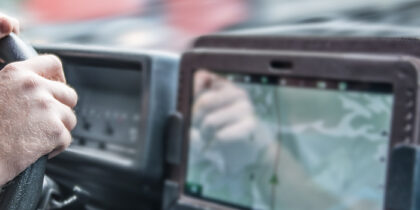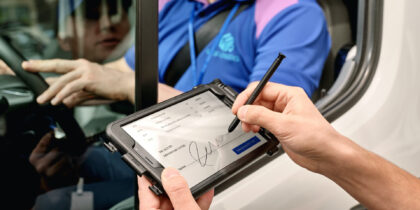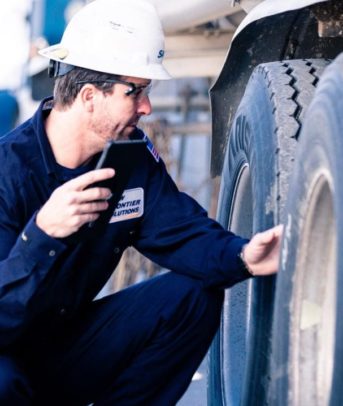Today, trucking fleets and drivers have come to rely on mobile solutions to streamline internal processes and boost operational efficiency. With onboard sensors and wireless devices, fleet operators can stay connected with every truck and driver on the road and achieve new levels of efficiency. Mapping capabilities enable targeted navigation for real-time routing updated to avoid traffic problems and respond to customers’ needs.
With enterprise fleet management applications, managers are able to track driver performance and pinpoint inefficiencies in the system, from routes that take too long to drivers who waste fuel. Two-way communication with the driver and vehicle enables real-time reporting and unprecedented responsiveness. As reported in Trucking Info, the average over-the-road fleet spends 20 to 30 percent of its time idling, and some fleets sit still with their engines running up to 40 percent of the time. Poor communication and traffic congestion add up to a lot of wasted fuel and non-productive time.
However, not every company is taking advantage of the data available from its fleet. A recent industry survey found that many fleet operators aren’t using their onboard computer data to identify cost-savings potential: While 70 percent use it to monitor driver logs and dispatching, only 6 percent use the data to manage fuel consumption, which makes up around 70 percent of annual operating costs.
Mobile Solutions Can Improve Fleet Management
Still, fleet management solutions are potential game changers. With mobile devices linking the truck cab with the dispatcher’s desk and the customer’s transportation management system, the days of faxed driver instructions and reports soon will be a distant memory. The streamlined communication gives managers real-time reports for productivity and regulatory compliance. Embedded vehicle sensors can track driver and engine performance, and send alerts to drivers for engine problems and other diagnostic issues. Managers can also track hours of service and monitor safety habits behind the wheel, correcting behavior before it’s reflected in poor performance.
From the maintenance perspective, vehicle sensors can alert drivers to engine problems and other diagnostic issues, while informing routing centers when the vehicle is out of service and preparing repair centers with proactive scheduling. By capturing vehicle diagnostics, the maintenance staff can optimize performance and assess the useful life of the vehicle to help drive capital expense budgeting.
Connected trucks can stay on the road longer and avoid unscheduled downtime — and small efficiency gains can pay off big over the long haul.
For drivers, mobile solutions provide an easier and more reliable way to adhere to Department of Transportation requirements and regulations from the Federal Motor Carrier Safety Administration (FMCSA). Electronic alternatives, enabled by mobile devices, make compliance easier while also reducing errors. The bane of OTR operators, paper logbooks may rely on the driver’s memory or be incomplete when they’re inspected. To meet the electronic logging device (ELD) mandate, mobile fleet technologies allow drivers to immediately input data into one simple form that contains all the necessary information, on a device that they’re already familiar with using.
For fleet managers as well as drivers, it’s a brave new electronic world on the road. Mobile tablets and smartphones can provide a flexible, secure connection at the center of a comprehensive fleet telematics strategy.
Our comprehensive selection of fleet management solutions will help ensure your fleet complies with the new ELD mandate.










